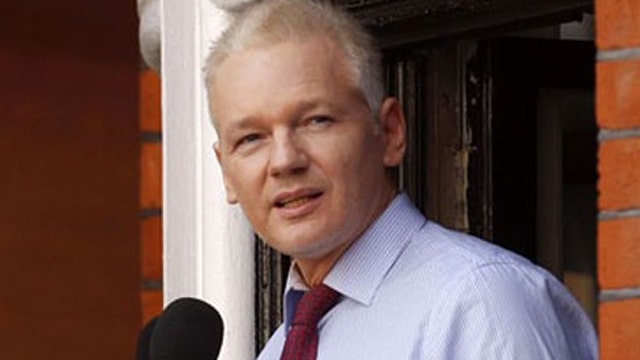Julian Assange sex assault claims set to expire
Swedish officials say they're making a last ditch attempt to question the Wikileaks founder over allegations involving rape and sexual misconduct from a visit to Sweden five years ago
Ecuador asked the United Kingdom to let WikiLeaks founder Julian Assange leave his asylum in London briefly for medical checks. Britain responded Thursday by saying he could have medical care but would be arrested if he leaves Ecuador's embassy.
Foreign Minister Ricardo Patino said that Assange needs an MRI for a pain in his shoulder that began three months ago. Assange has been living at the embassy since June 2012 to avoid extradition to Sweden, where he faces allegations of sexual misconduct and rape of two women. He denies the accusations and said he believes that Sweden would send him to the United States to be face charges for the WikiLeaks publication of thousands of classified U.S. government documents.
"We are asking for a special safe conduct pass that lasts a few hours only so he can take a magnetic resonance and return under our protection," Patino said, adding, "and possibly beneath the protection of British police, if they want to put 10,000 police alongside the vehicle to take him to the hospital."
Britain's Foreign Office said in a statement that Britain would not "in any way seek to impede Mr. Assange receiving medical advice or care. We have made this clear to the government of Ecuador."
But British officials have also made it clear that Assange faces arrest if he leaves the embassy.
On Monday British police withdrew a 24-hour guard from the embassy, but said they would still "deploy a number of overt and covert tactics" to arrest Assange if he left.
Patino said an option would be for another country or the Red Cross to bring a portable MRI machine to the embassy.
The Associated Press contributed to this report.

